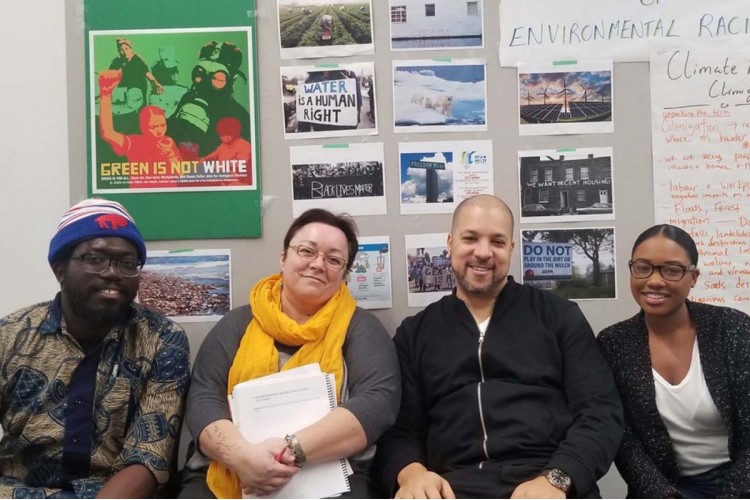There is a saying that “nature does not discriminate.” Policy and people do, however. In 2014, Naomi Klein wrote the following for rabble.ca
What does #BlackLivesMatter, and the unshakable moral principle that it represents, have to do with climate change? Everything. Because we can be quite sure that if wealthy white Americans had been the ones left without food and water for days in a giant sports stadium after Hurricane Katrina, even George W. Bush would have gotten serious about climate change. Similarly, if Australia were at risk of disappearing, and not large parts of Bangladesh, Prime Minister Tony Abbott would be a lot less likely to publicly celebrate the burning of coal as “good for humanity,” as he did on the occasion of the opening of a vast new coal mine.
And if my own city of Toronto were being battered, year after year, by historic typhoons demanding mass evacuations, and not Tacloban in the Philippines, we can also be sure that Canada would not have made building tar sands pipelines the centerpiece of its foreign policy. The reality of an economic order built on white supremacy is the whispered subtext of our entire response to the climate crisis, and it badly needs to be dragged into the light.
Dragging environmental racism into the light is exactly what the Canadian and international arms of the Coalition of Black Trade Unionists (CBTU) are doing. The Activist Toolkit recently interviewed Christopher Wilson, first vice president of CBTU Canada, which is a community organization rooted in the labour movement that was created to give voice to Black trade unionists and advocate through the labour movement to redress the issues impacting our community, such as environmental racism.
CBTU Canada has joined Adapting Canadian Work and Workplaces to Respond to Climate Change to engage community and labour activists through a research project on environmental racism. According to Wilson, “The labour movement has a number of different workshops and curricula designed to engage members such as talking union basics, grievance handling, but there wasn’t a lot of work done on the topic of environmental racism. So we decided to fill that void by creating the ‘Green Is Not White’ workshop, which is available to labour unions and community organizations.”
Employing a participatory method, which calls on participants to draw on their own experience and decide on next steps as a group, this action-oriented research project is building change. Visit #EnvRacismCBTUACW to see accounts shared by community members and get involved.
CBTU International has 50 chapters in the United States, where a national Community Action and Response Against Toxics (CARAT) training program has been created. This program works with other safety and environmental allies, helping to educate and monitor issues such as illegal waste dumping and hauling in poor communities. Local CARAT teams organize on the ground building campaigns and serve as a liaison with government to ensure environmental health issues are addressed. Currently, there are eight CBTU chapters with local CARAT teams.
The Activist Toolkit has been amplifying projects which are working to address environmental racism. If you are working on this issue, send a message to Maya Bhullar at [email protected]
Image: Green is Not White Workshop, used with permission.




